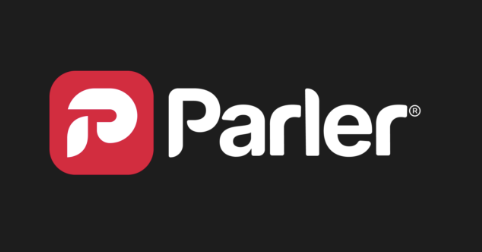Share this @internewscast.com
Parler has not only made a return but is also pioneering a significant shift in technology and ideology regarding social media interactions. With new ownership, the platform now empowers its users by giving them control over content, data, and the ability to monetize their activities.
Five years ago, Parler faced scrutiny from the Stanford Internet Observatory (SIO), a USAID-supported project aimed at curbing what it deemed “disinformation.” Funded by National Science Foundation grants, the SIO led an effort to silence Parler along with prominent conservative figures and media outlets such as Tucker Carlson, Dinesh D’Souza, Sean Hannity, Laura Loomer, and Senator Ted Cruz, as identified in official reports. This resulted in Parler being deplatformed by hosting services and removed from app stores, nearly erasing its digital presence. Instead of surrendering, Parler chose to adapt and redefine itself.
“We’re not just rebuilding Parler. We’re redefining what social media can and should be,” said Yasser Elgebaly, Chair of Parler.
This transformation is driven by the Optio Blockchain (OPT), which underlies Parler’s new ecosystem. Users now manage their own data and can earn OPT tokens simply by engaging with the platform. These tokens have recently become tradable on XT.com, enabling users to convert their engagement into tangible value. This approach challenges the traditional Big Tech model, where users are viewed as the product rather than having a stake in the ecosystem.
In tandem with its blockchain rollout, Parler has added two major content tools: Burst, a short-form video feature rivaling TikTok, and PlayTV, a long-form, censorship-free alternative to YouTube. Both are integrated into a creator economy designed to reward visibility and creativity without fear of arbitrary bans or algorithmic suppression.
While these front-end upgrades are groundbreaking, the backend developments are equally transformative. On February 6, Parler acquired key infrastructure during Edgio’s bankruptcy auction, securing the rights to the EdgeCast brand, its software stack, and core data center hardware. The $7.5 million deal, reported by The Gateway Pundit, gives Parler robust cloud capacity across a global network.
The newly relaunched EdgeCast Cloud Services will come online April 15, beginning with 10Tbps of network bandwidth spread across 25 Points of Presence (PoPs). These centers—located in major global hubs like Chicago, New York, Frankfurt, Tokyo, and São Paulo—will initially focus on video-on-demand delivery and software downloads. Limited live-streaming will be available at launch, with full capability expected later this year. The company plans to reach 50Tbps by year’s end, inching close to the network’s former peak of 65Tbps before it was shut down. At its height, the original EdgeCast hit 140Tbps under previous ownership.
To power this scale, Parler has integrated Triton—formerly known as Joynt Legacy Cloud, which originated as Samsung Cloud—with its open compute hardware. This stack forms the basis of a fully independent full-stack cloud services platform, allowing Parler and third-party developers to operate free from traditional cloud monopolies.
“Parler is just the beginning,” said Bryan Ferre, Co-Creator of Optio Blockchain. “In this new model, the users are the primary beneficiary of their engagement—not the product being sold.”
At the helm of this expansion is Pulse, Parler’s parent company, which is constructing a broad, decentralized digital ecosystem. The vision spans social media, streaming, payments, e-commerce, content delivery, blockchain, and cloud services, all integrated under a single user-driven infrastructure. It’s a bold attempt to compete with Big Tech not by mimicking it, but by replacing it.
Since the acquisition, EdgeCast Cloud Services has hired approximately 100 former Edgio employees, with 70% focused on engineering and network operations. Importantly, these hires were not involved in Edgio’s bankruptcy proceedings, meaning Pulse inherited talent—not debt.
EdgeCast’s services will be offered globally, with exceptions in the Middle East, South Asia, Eastern Europe, Africa, and Australia. In addition to powering Parler and PlayTV, the network will serve other clients and developers, acting as a standalone cloud solution.
Though 2024 revenue figures remain undisclosed, company officials confirm that new funding rounds and acquisitions will be announced in the coming months as Pulse continues to scale.
Parler’s re-emergence isn’t just symbolic—it’s strategic. The integration of blockchain-based rewards, global infrastructure, and censorship-resistant content creation tools places the platform on the cutting edge of digital freedom. Where Big Tech tightens control, Parler is opening the gates.
Once again as an all too common trend in right wing redemtion stories, what began as a desperate struggle for survival has evolved into a movement rooted in technological independence and user empowerment. With Burst and PlayTV growing daily, the OPT token circulating on a major exchange, and EdgeCast Cloud reigniting a global infrastructure footprint, I believe Parler’s grand return represents more than just a comeback.

















